The essential GA4 reports you need to measure your SEO campaigns

[ad_1]
It was hard not to hear or talk about him GA4 over the past year.
It’s been one of the most talked about Google updates within the SEO community and much more broadly – although it’s not directly related to SEO strategy or tactics.
Google Analytics is the popular platform for monitoring, measuring and understanding interaction with our websites. Although reports, data types (“not made available” to anyone?), and specific features have changed over the years, usage of the platform has not diminished.
Now that Universal Analytics in Google Analytics has reached the end of its life, it’s time to get to know GA4.
Whether you migrated months ago, were automatically migrated by Google, or are starting from scratch, I want to share five essential reports you need to know about to measure your campaigns and search engine optimization (SEO) efforts.
Traffic acquisition report
Let’s start with what I consider to be the most important and relevant report, Traffic Gain. The report is intended to help site owners understand where visitors are coming from before arriving on the site.
So why is this important for SEO purposes?
The Traffic Acquisition report allows you to measure how your SEO campaigns compare with other channels and within your integrated marketing efforts as a whole.
How many visitors come from organic search compared to search? How engaging are organic visitors compared to email visitors? There are a lot of comparisons and details to dig into here.
This is one of the first and most important data sources to connect the many dots between the natural and intentional influences that influence audiences to your website content.
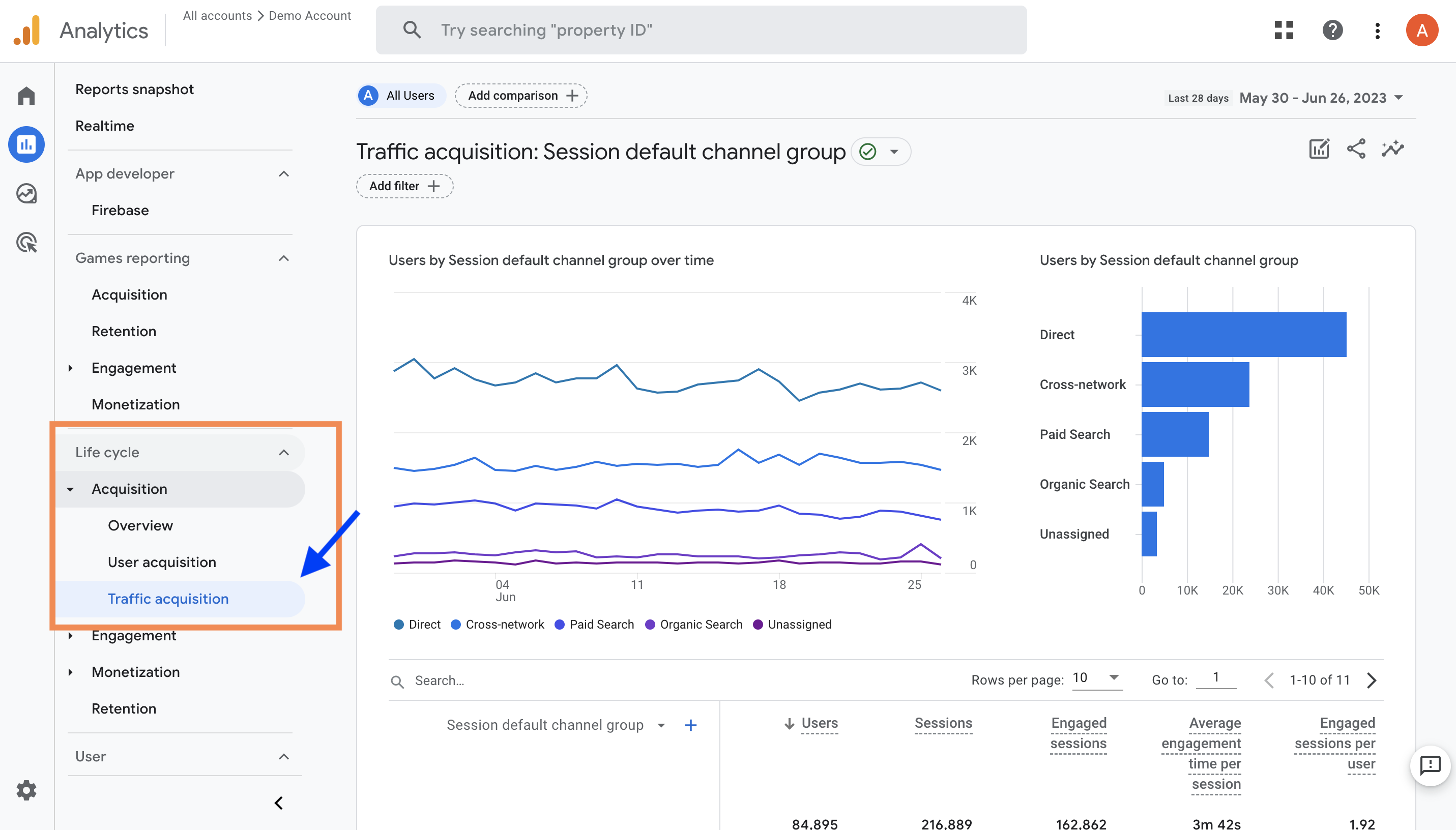 Screenshot from Google Analytics 4 Jun 2023
Screenshot from Google Analytics 4 Jun 2023By default, Google Analytics 4 uses a data-driven attribution model, which includes an algorithm to determine how to give credit to different channels throughout the user journey.
While data-driven attribution can be used in Universal Analytics, it’s more comprehensive in Google Analytics 4, taking into account more than 50 different touchpoints to achieve accurate attribution.
Metrics that can be viewed in the Traffic Acquisition report include:
- average engagement.
- Transfers.
- Interactive sessions.
- Sharing sessions per user.
- Participation rate.
- number of events.
- events for each session.
- sessions.
- Total revenue.
- users.
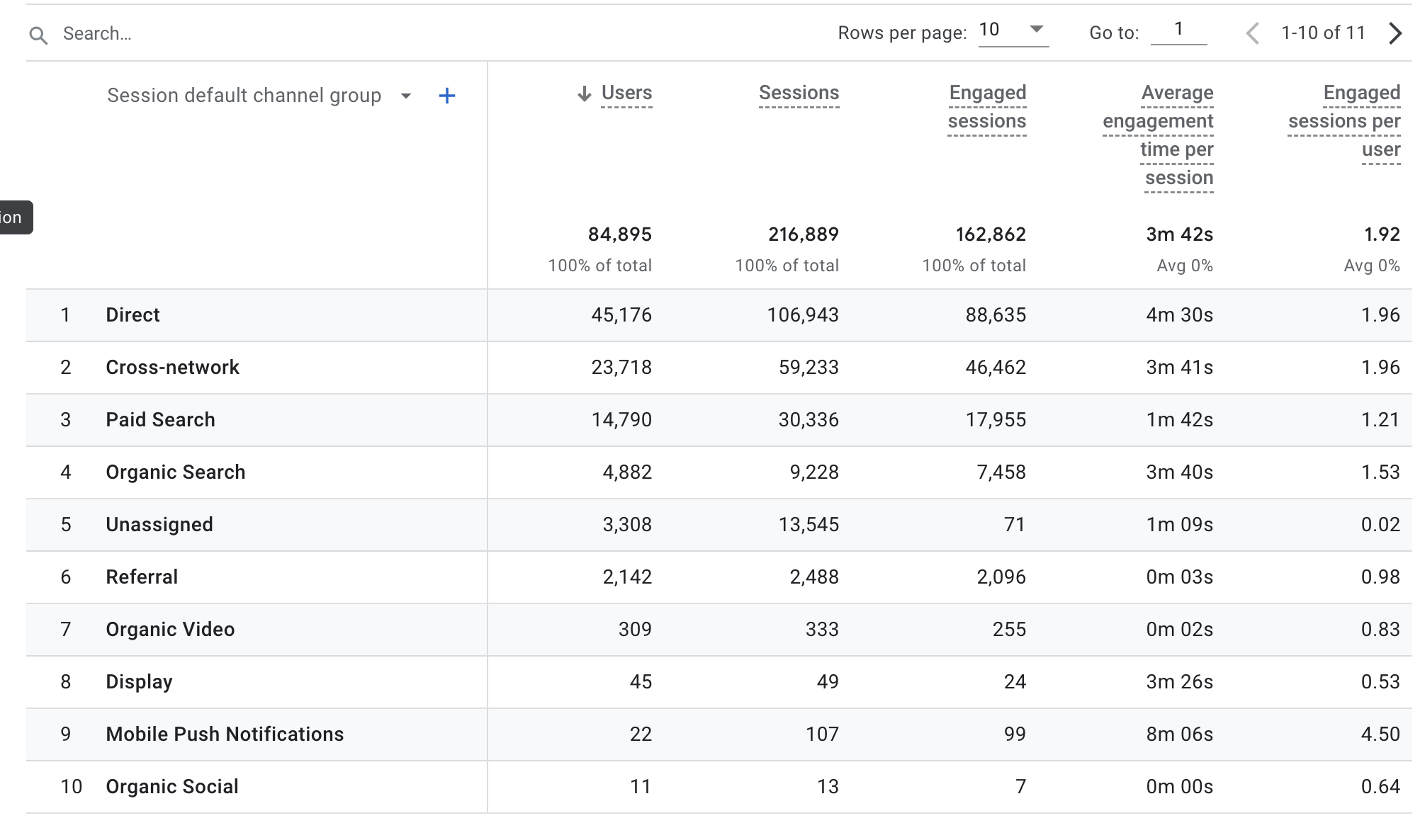 Screenshot from Google Analytics 4 Jun 2023
Screenshot from Google Analytics 4 Jun 2023Conversion reports
Conversion reports are important to search engines (SEO) for their ability to track the events that led a visitor to the conversion made on a website.
The report will indicate what triggered a conversion by scoring conversions based on their event name and how to allocate credit for the conversion based on your attribution model.
The default report includes conversions, total revenue, and total users metrics.
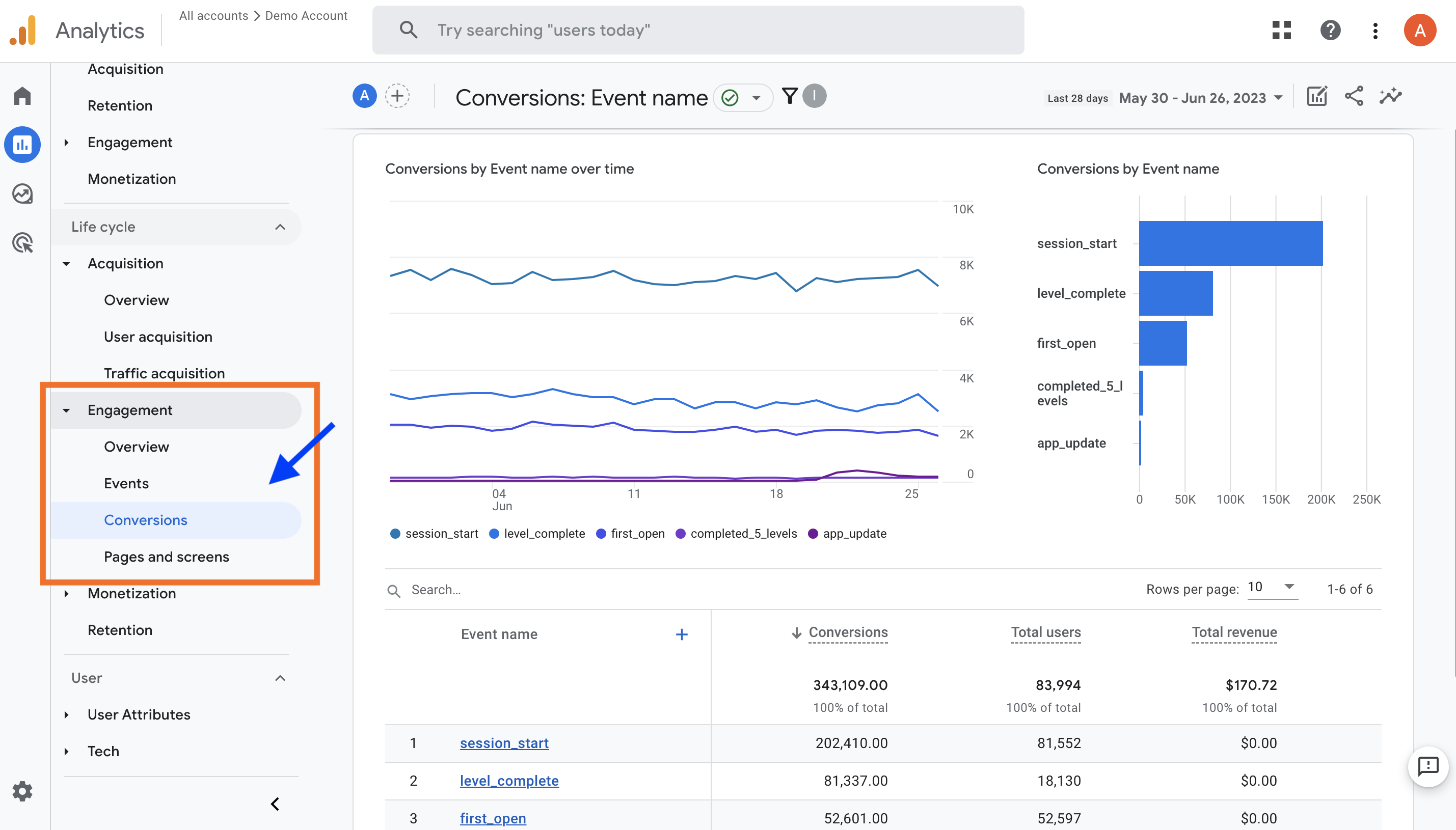 Screenshot from Google Analytics 4 Jun 2023
Screenshot from Google Analytics 4 Jun 2023The conversion setting is different in Google Analytics 4 than it was in Universal Analytics.
In Universal Analytics, Goals were used to indicate conversions, while Google Analytics 4 uses Events. When set up, Google Analytics 4 contains a number of current events that can be flagged as conversions based on your marketing goals.
Current events include:
- Clicks.
- First visit.
- page_view.
- he moved.
- session_start.
- Submit the form.
- view_search_results.
In most cases, you’ll need to configure your events to track the conversions that they’re best aligned with Your conversion path.
For websites focused on generating leads, form submissions are usually the primary conversions. Although Google Analytics 4 will track form submission actions locally, it probably won’t provide enough data to be as valuable as it needs to be.
For example, a lead who submits a newsletter may be in a different part of the funnel or may be a secondary target versus submitting a contact form. We recommend Create a custom event tag with Google Tag Manager.
As mentioned in the Traffic Acquisition report section, GA4 uses a data-driven attribution model so that conversions can be more accurately attributed to the appropriate channel as visitors interact with the site through various touch points.
Google search console reports
Google search console One of the most important sources of performance data and information for SEO professionals, and just like with Universal Analytics, users can integrate GSC with GA4.
As with UA, there are two reports in Google Analytics4 that are related to Search Console:
- Google organic search queries: This report allows you to see the GSC metrics by search query.
- Google organic search traffic: This report shows landing pages with Search Console and Analytics metrics.
Search Console reports are unpublished by default. To view the reports, you will need to add a new Search Console link property through your admin settings.
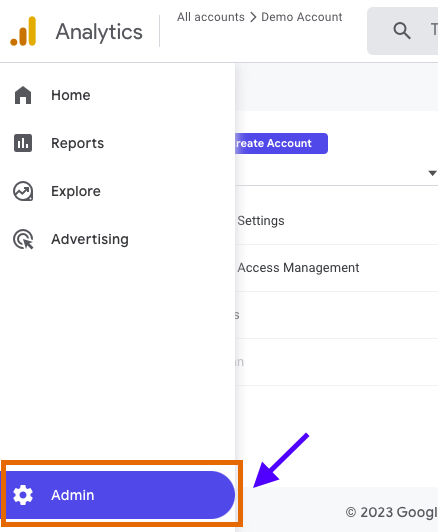 Screenshot from Google Analytics 4 Jun 2023
Screenshot from Google Analytics 4 Jun 2023Under the Properties section, find the “Search Console Link” button.
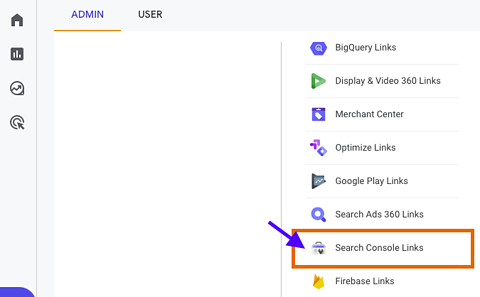
 Screenshots from Google Analytics 4 Jun 2023
Screenshots from Google Analytics 4 Jun 2023Although reporting in Google Analytics 4 will not be able to completely replace the level of organic reporting present in the GSC, having the data on one platform is beneficial.
The greater value is that site owners can see how organic visitors interact with the site in relation to specific landing pages.
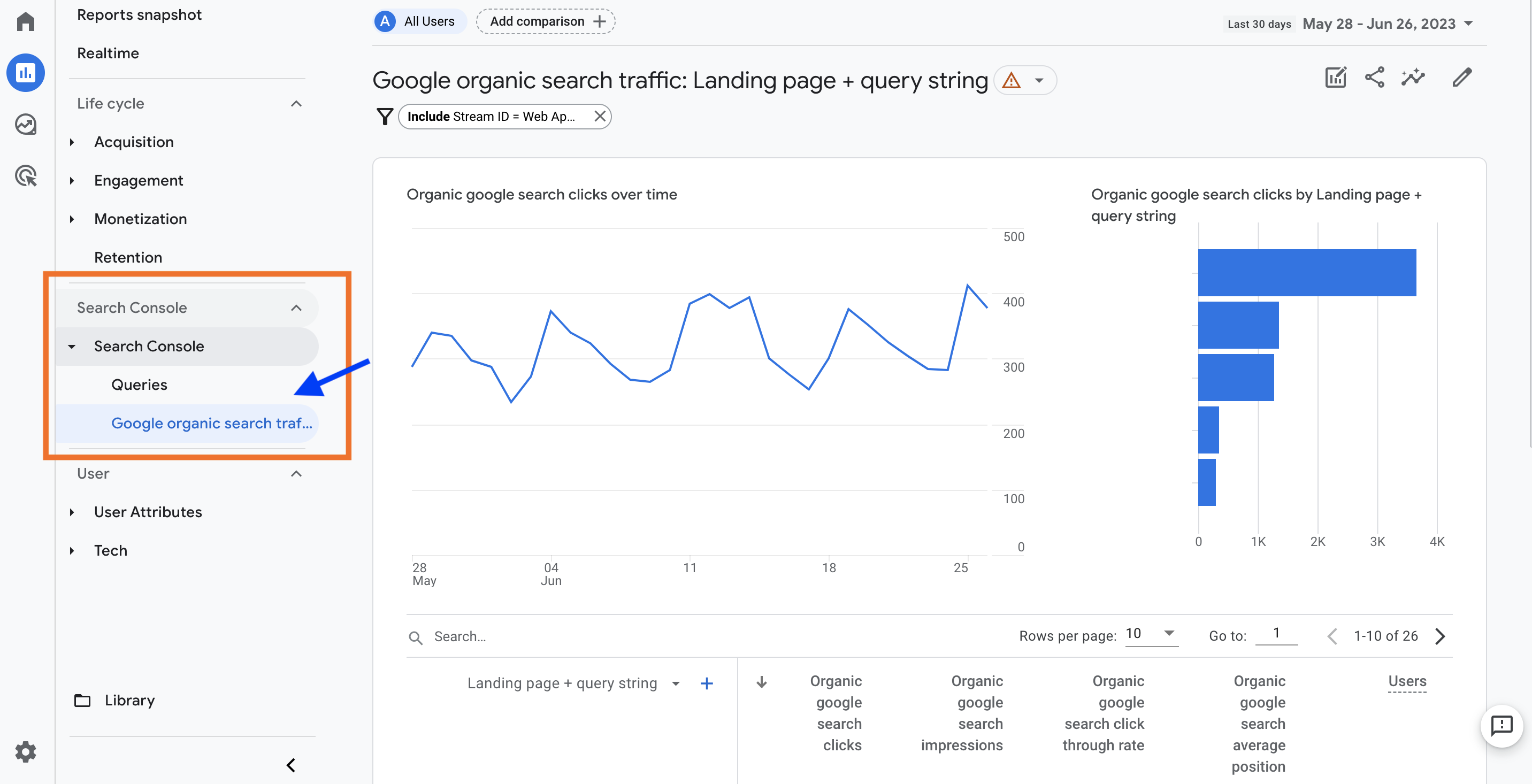 Screenshot from Google Analytics 4 Jun 2023
Screenshot from Google Analytics 4 Jun 2023How much data does the Google Organic Traffic Report provide for landing pages compared to the insights provided by the more broadly named Landing Page Report (which I’ll elaborate on in the next section)?
The Google Search Console report provides a comprehensive understanding of landing pages and your website’s visibility in Google search results.
It provides detailed metrics like impressions, clicks, click-through rates, and keywords, which are essential in driving organic traffic to your landing pages.
By comparison, Google Analytics 4 Landing Page reports provide a broader perspective by analyzing different traffic sources, including organic search, direct traffic, and referrals.
While both reports provide valuable insights, the Google Search Console report focuses specifically on the visibility and performance of landing pages within Google search results.
It provides in-depth data to evaluate organic search traffic and keyword performance.
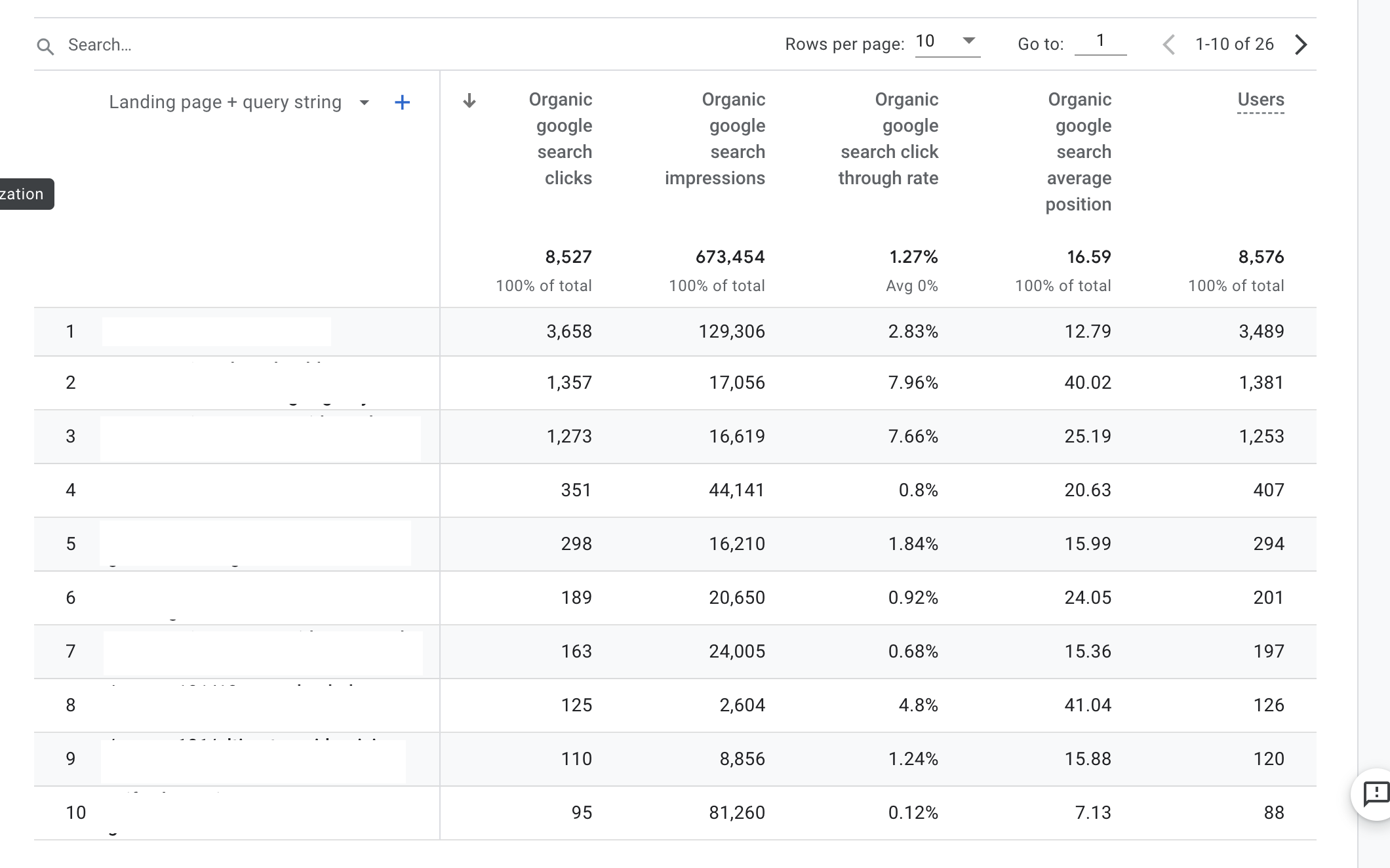 Screenshot from Google Analytics 4 Jun 2023
Screenshot from Google Analytics 4 Jun 2023On the downside, there are some limitations to Search Console’s integration with GA4. Unfortunately, Google Analytics 4 allows only one data source to be associated with the search console.
Landing page reports
The landing page report helps you understand which pages on your website receive the most organic traffic.
By analyzing this data, you can identify high-performing pages that attract organic visitors and optimize other pages accordingly. You can also evaluate the bounce rate, average time on page, and conversion rate of each landing page to improve your SEO strategy.
In the Landing Page Report on Google Analytics 4, site owners can easily switch secondary dimensions to see how the landing page is grouped based on where their users come from.
In the landing page report, you can easily see how the page is driving traffic to users at different stages of the conversion path using different secondary dimensions.
For example, adding a “session source/modifier” will allow you to see where the user is currently in their journey, while a “first user source/module” will show how first-time users interact with the location.
Conclusion
Whether you’re new to Google Analytics and discovering that GA4 is your first foray into the Google Analytics ecosystem or you’ve moved on and are starting to set your bearings, it’s important to know your way around and where to prioritize, time and focus.
Whether we like the new features, regret what Google Analytics 4 doesn’t have, or just need some time to adjust, they are here, and we’ll definitely adapt and find new and deeper ways to make use of our website data.
As always, please remember that data is data, whether from Universal Analytics, GA4, or any other measurement platform. What matters most is what we do with the data, how we integrate it, make use of it, and find meaningful insights.
Keep your measurement plan and what matters to you as a focal point as you connect the data to your marketing and SEO goals and objectives.
More resources:
Featured Image: Chianoful/Shutterstock
[ad_2]
Source link




